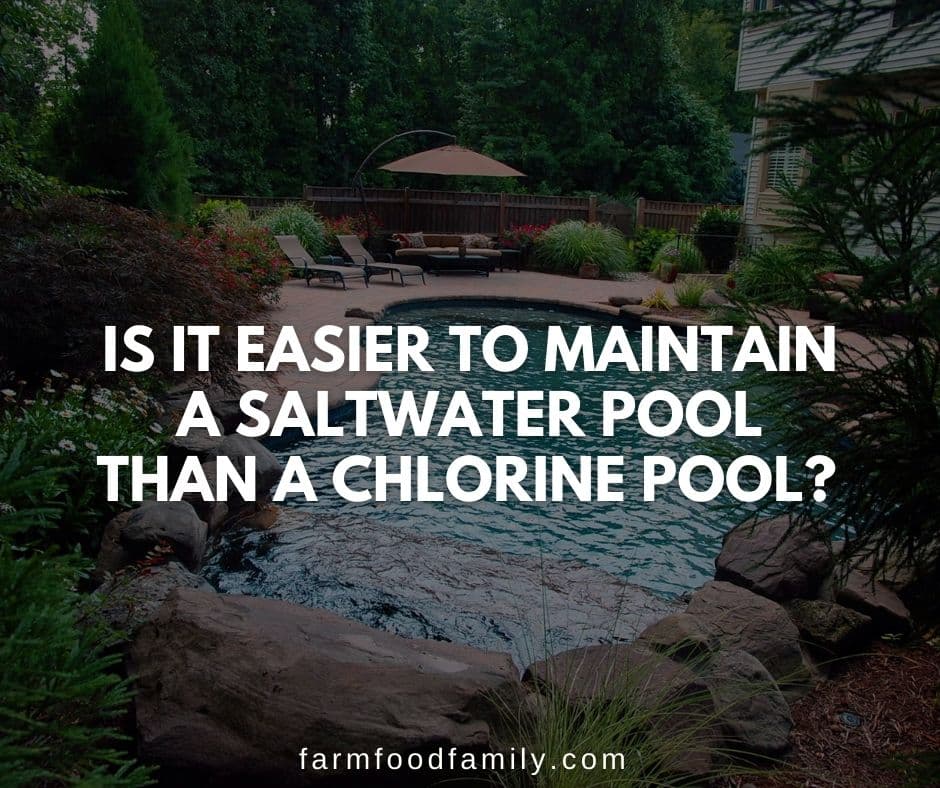Generally, homeowners prefer owning and maintaining a saltwater pool. If you’ll ask them, they’ll likely tell you that they prefer not having to purchase chlorine regularly. Because of the method named electrolysis, saltwater pools generate their natural chlorine.
Supplementary advantages include the absence of odorous contaminants. Reduced maintenance is also a plus. However, it is not guaranteed that saltwater won’t require maintenance, because, in fact, they still need to be properly and efficiently maintained.
Unlike chlorine pools, which necessitate periodic chemical modifications, saltwater pools require very little maintenance and may operate for long periods without needing to be regulated. This means you’ll spend less time preserving your pool. So, arguably, it’s much simpler and less complicated to preserve a saltwater pool rather than a chlorine pool.
On the other hand, how then, can you efficiently maintain it? What are the pros and cons of a saltwater pool? Let us discuss these questions.
Tips and Instructions on How to Efficiently Maintain Your Saltwater Pool

Here are some useful tips and reliable instructions on how you can maintain your saltwater pool very efficiently and rigorously:
Regularly scrutinize your pool parts to see if your pump and filter are working properly
When all of your pool elements are working properly, saltwater pool preservation would be a snap. Hence, it’s critical to conserve the cleanliness of your pump, filters, and skimmer rigorously and ascertain that they’re in functional operation.
These components work collaboratively to preserve the cleanliness and safety of your water. Always ascertain that you’ll examine and clean them routinely, as they can accumulate dirt and detritus as time goes by.
A reduced water level might indicate that one of these components is becoming clogged. To eliminate accumulation, clean them at least once a week. Using a hose to spray water could be enough.
Moreover, thoroughly clean the pool’s generator cell every several months, as salt accumulation can cause it to grow scaly. Use a high-pressure water hose to clean it out, or scrape it off with a plastic scraper. This allows the salt to move freely throughout your pool.
Always make sure to eradicate the dirt out of your saltwater pool
The most crucial advice for preserving a saltwater pool is to eradicate the dirt. To successfully preserve the prime quality and cleanliness of your saltwater pool, you’ll want to rigorously eliminate dirt and detritus from the pool surface.
However, how can you effortlessly and effectively clean your saltwater pool? It’s indeed recommended to use a robotic pool cleaner. With a high-performing and dependable robotic cleaner, preserving your saltwater pool would be a breeze.
This year, the robotic pool cleaner brand Dolphin leads the rankings. At this point, I will show you some of the top Dolphin pool cleaner robot variants you can obtain to help you with your pool-cleaning duties:
Dolphin Nautilus CC Supreme
This Dolphin robotic pool cleaner comes with a long list of innovative functions. The majority of robotic cleaners, for instance, only have two scrubbing brushes. This high-grade unit, on the other hand, has a third brush that spins at extreme speeds to remove ugly sludge from your saltwater pool’s flooring and walls.
Furthermore, it highlights three distinct cleaning schedule cycles and four distinct cleaning settings. This enables you to accomplish your saltwater pool cleanup tasks with more accuracy and productivity.
Dolphin Nautilus Premier
The Premier’s unparalleled ability to climb walls allows it to do something that few pool cleaning robots can. Yes, it can powerfully raise its little electronic nose out of the water to reach right at the waterline. Moreover, the sticky sludge that stubbornly attaches itself to your saltwater pool surfaces is tackled by this robot cleaner’s strong scrubbing brushes.
Your saltwater pool must be cleaned at least twice a week. Because it is more susceptible to trapping leaves and other debris, an exposed saltwater pool may necessitate more cleanup.
Additionally, you must clean your pool lining once a month and observe correct care guidelines when you’ll close your pool during the wintertime.
Algae could also give your saltwater pool a grimy green appearance. To eradicate algae from the edges and base of your pool, use a specialized algae brush. They also offer an algaecide for use in pools to prevent excessive algae buildup.
The pH and Chlorine Levels Must Be Scrutinized Regularly
The pH of a pool must be between 7.2 and 7.6. If the pH becomes imbalanced, muriatic acid can be used to lower the ph level. To increase the pH, you can utilize sodium bicarbonate.
The alkaline levels assist in maintaining a stable pH in your saltwater pool. Check this level monthly and aim for 80 to 120 parts per million. Again, sodium bicarbonate can be used to raise levels, while muriatic acid can be used to decrease them.
The chlorine level must be between 1 and 3 parts per million. The sun’s beams might remove more chlorine out of your saltwater pool if you reside in a tropical area. Hence, you must test the stabilizer levels, which ought to be around 70 and 80 parts per million.
You might have to start removing part of the water from your pool to bring fresh water in some instances. This will assist in the diluting of the pool’s overly concentrated water. You can also use cyanuric acid to restore your stabilizer degrees.
The Pros and Cons of Using a Saltwater Pool
Pros:
- Saltwater pools are much gentler to an individual’s eyes and skin as well.
- They normally don’t require as much maintenance as chlorine pools.
- Owners of saltwater pools do not need to keep massive amounts of chlorine at home.
- Saltwater has a milder texture than chlorinated pool water.
Cons:
- Several pool components can be ruined by salt.
- Repairing saltwater pools necessitates the use of a professional specialist
- A saltwater pool is much costlier than a chlorinated pool.

